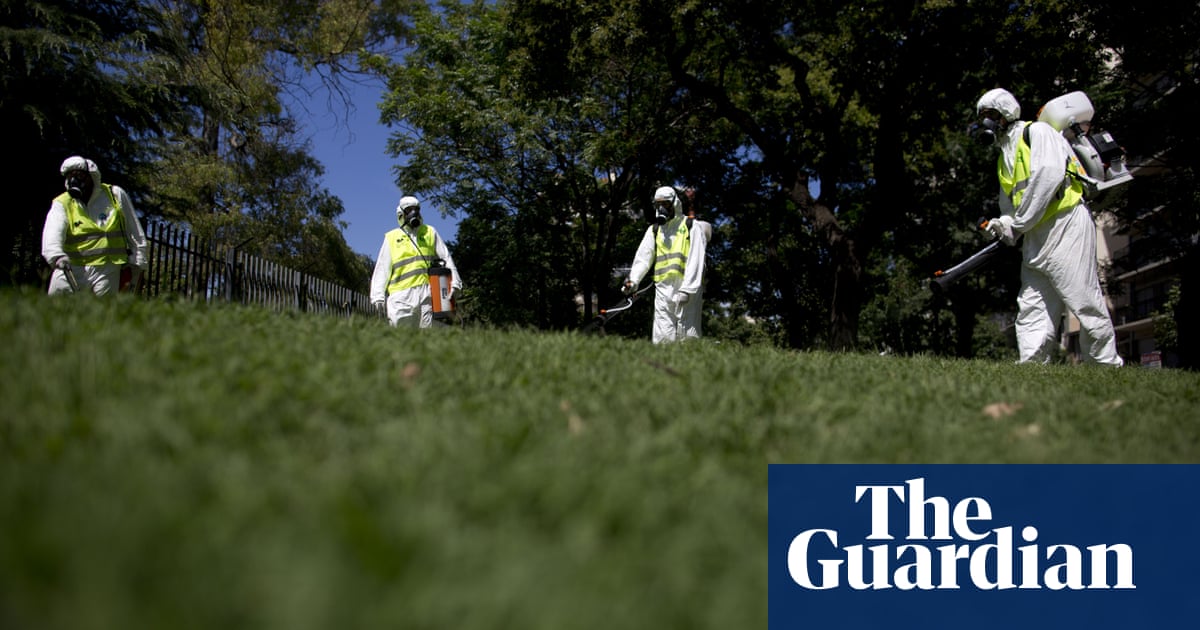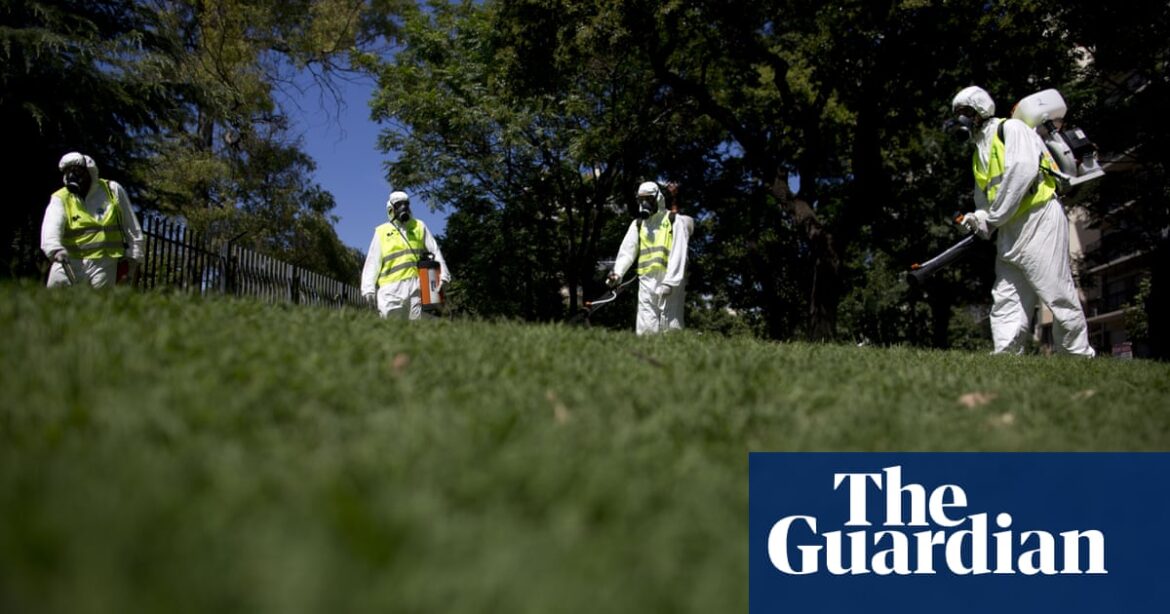
Mauricio Ríos, a 52-year-old who has worked in cleaning the Buenos Aires subway for 20 years, witnessed a phenomenon he had never experienced before. He saw a large and loud group of mosquitoes swarming in dark clouds that stretched along the entire platform at Piedras station.
Ríos took out his phone and recorded the increasing swarm for 30 seconds. He then quickly went to the break room, notified his supervisor, and turned off the station.
During the summer, bugs tend to descend towards this area, drawn in by the light. However, Ríos noted that there has never been such a large number of bugs before. The next day, they reappeared without explanation. Ríos expressed confusion about the situation and noted that this seems to be happening in other areas as well, according to the news.
The video he posted became extremely popular as Argentina experiences an unprecedented infestation of mosquitoes, which has been linked to a rise in dengue, a contagious illness spread by the Aedes aegypti mosquitoes.
The health ministry has reported a staggering increase of 2,153% in the number of dengue cases registered since the beginning of the year, with 74,555 cases in total. This is significantly higher than the same time period in 2023. Tragically, 47 deaths have been attributed to dengue in 2024, and health officials anticipate a further rise in cases in the upcoming weeks.
Symptoms of dengue may include severe headaches, elevated body temperature, nausea, aching muscles and joints, discomfort in the eye area, and a skin rash. In certain cases, dengue can be fatal, particularly for individuals who have experienced multiple infections in the past.
The director of Córdoba University’s Center for Tropical Diseases, epidemiologist Hugo Pizzi, claims that the current epidemic is due to a rise in temperatures in the country, which he refers to as “tropicalization,” along with an uptick in unexpected rainfall.
Pizzi stated that due to human-induced climate change, there has been an increase in the number of mosquitos in the southern provinces of the country, which was previously unimaginable 25 years ago. According to him, this is the ideal formula for the growth of mosquito populations.
Despite the fact that mosquitoes do not discriminate based on social status when it comes to biting humans, the cost of protection has significantly risen. This increase in price is due to the recent actions of Javier Milei, the libertarian president of the country, who devalued the peso by 54% and removed all price regulations. A 290ml can of bug spray now costs a minimum of 3,620 pesos ($4 at the official exchange rate, $3.60 at the unofficial rate).
Last April, the health authorities in Argentina sanctioned a dengue vaccine from the Takeda laboratory in Japan. This vaccine provides protection against all four dengue serotypes. However, due to its high cost, it is not easily accessible for the majority of the population in the country. According to a representative from the health ministry, there are currently no plans to make the vaccine readily available as they believe further trials are necessary.
Disregard the advertisement for the newsletter.
after newsletter promotion
Milei’s administration has attributed the outbreak to the previous government, claiming that former president Alberto Fernández did not effectively inform the public about the potential risk. Additionally, Milei’s campaign manager, Fernando Cerimedo, has insinuated on X that Bill Gates deliberately released the mosquitoes to undermine the new government and benefit from the sales of the dengue vaccines, although no proof has been presented.
Pizzi expressed concern that many Argentinians were not fully acknowledging the severe circumstances and urged individuals to tidy their yards, get rid of standing water, trim lawns and weeds, and safeguard their children with mosquito nets. He stressed that young children are vulnerable and need protection.
A three-month-old infant passed away from dengue in Misiones, a northern province, in January.
Pizzi urged the Argentine government and its citizens to take a stronger stance against dengue and the mosquito that transmits it. He stated, “We must not let a small insect like a mosquito intimidate us.”
Source: theguardian.com



